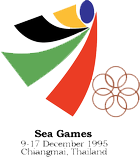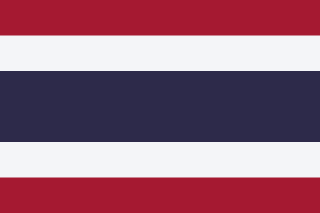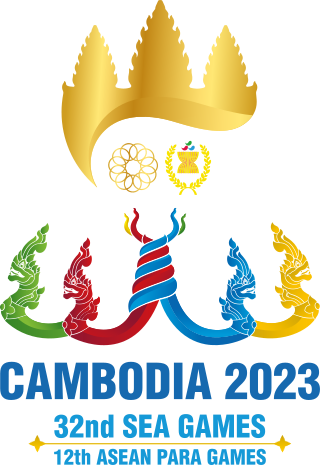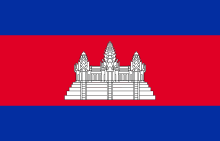East Timor is a relatively new country. As one of the world's poorest countries, athletic activities are limited at the professional level.

The Southeast Asian Games, commonly known as SEA Games is a biennial multi-sport event involving participants from the current 11 countries of Southeast Asia. The games are under the regulation of the Southeast Asian Games Federation with supervision by the International Olympic Committee and the Olympic Council of Asia.

The 1965 Southeast Asian Peninsular Games, officially known as the 3rd Southeast Asian Peninsular Games, was a Southeast Asian multi-sport event held in Kuala Lumpur, Malaysia, from 14 to 21 December 1965 with 14 sports featured in the games. Originally to be hosted by Laos, the third edition of the games was hosted by Malaysia after the former was not able to honour its hosting commitment citing financial difficulties and would later known to have hosted the 2009 SEA Games decades later. Two years earlier, the third SEAP Games was cancelled as Cambodia pulled out of hosting the event due to internal strife. This was the first time Malaysia host the games. Malaysia is the third country to host the Southeast Asian Peninsular Games, which later known as the Southeast Asian Games after Thailand and Myanmar, then Burma. The games was opened and closed by Ismail Nasiruddin, the King of Malaysia at the Stadium Merdeka. The final medal tally was led by Thailand followed by host Malaysia and Singapore.

The 1975 Southeast Asian Peninsular Games, officially known as the 8th Southeast Asian Peninsular Games, was a Southeast Asian multi-sport event held in Bangkok, Thailand from 9 to 16 December 1975. This was the third time Thailand hosted the games, and its first time since 1967. Previously, Thailand also hosted the 1959 inaugural games. Cambodia and Laos, which only sent token squads made up of military personnel to previous games, declined to participate due to internal political problems, while South Vietnam was fallen and no longer existed. These were the last games to bear the Southeast Asian Peninsular Games name before it was renamed the Southeast Asian Games. The games were opened and closed by the King of Thailand, Bhumibol Adulyadej, at Suphalachasai Stadium. The final medal tally was led by Thailand, followed by Singapore, Burma and Malaysia.
The 1983 Southeast Asian Games, officially known as the 12th Southeast Asian Games, or informally Singapore 1983, was a Southeast Asian multi-sport event held in Singapore from 28 May to 6 June 1983. Scheduled to be hosted by Brunei in accordance to the renewed alphabetical rotation of hosting duties, the 1983 SEA Games were offered to be hosted by Singapore as Brunei prepared for its forthcoming independence from the United Kingdom. The games also marked the return of Cambodia, as People's Republic of Kampuchea after an 8-year-long absence since the Khmer Rouge seized power in 1975.

The 1995 Southeast Asian Games, officially known as the 18th Southeast Asian Games, Chiang Mai, 1995, was a Southeast Asian multi-sport event held in Chiang Mai, Thailand from 9 to 17 December 1995. It was the first time that a non-capital city hosted the biennial sports event. Chiang Mai is the second Thai city to host the Southeast Asian Games after Bangkok. The games were opened and closed by Vajiralongkorn, the then-Crown Prince of Thailand, making him the first person as non-head of state to open the SEA Games. With the return of Cambodia, all ten members of the federation were present to compete in the SEA Games for the first time.

Thailand participated in the 2005 Southeast Asian Games held in multiple venues in the Philippines from November 27, 2005 to December 5, 2005. The chief of mission to the games was Thana Chaiprasit. At the opening ceremony, The Thai delegation was accompanied by Princess Sirivannavari Nariratana. It won 87 gold, 78 silver and 118 bronze medals at the games.

The ASEAN Para Games is a biennial multi-sport event held after every Southeast Asian Games involving disabled athletes from the current 11 Southeast Asia countries. Participating athletes have a variety of disabilities ranging from spastic, cerebral palsy, mobility disabilities, visual disabilities, amputated to intellectual disabilities. The ASEAN Para Games is under the regulation of the ASEAN Para Sports Federation (APSF) with supervision by the International Paralympic Committee (IPC) and the Asian Paralympic Committee and is traditionally hosted by the country where the Southeast Asian Games took place.

Southeast Asian music encapsulates numerous musical traditions and styles in many countries of Southeast Asia. This subregion consists of eleven countries, namely, Brunei, Cambodia, East Timor, Indonesia, Laos, Malaysia, Myanmar, Philippines, Singapore, Thailand and Vietnam, which accommodate hundreds of ethnic groups. Thousands of styles of music are present as a result of regional groups speaking many languages all over the subregion of Asia. Regionalism is usually accepted and celebrated, however, it is sometimes suppressed by the people, even though countries from Southeast Asia are trying to construct national cultures. Hinduism, Buddhism, Islam, and Christianity are the paramount faiths in Southeast Asia. Throughout history to the present time, instrumental and vocal music has been centralized and focused on the religious life of subregional Asia. Urbanization has helped to assimilate musical and religious practices. Although modernization has put a significant threat on the distinctive regional music traditions, most countries in the region have maintained their own unique style and nature of music that encapsulates various periods of development in music, culture, and belief.
The Cambodia Baptist Union is an association of Baptist Christian churches in Cambodia. It is affiliated with the Evangelical Fellowship of Cambodia, Kampuchea Christian Council, and the Baptist World Alliance.

Cambodia participated in the 2007 Southeast Asian Games held in the city of Nakhon Ratchasima, Thailand from December 6, 2007 to December 16, 2007.

Cambodia first competed at the Asian Games in 1954. Cambodia missed the 1966 Asian Games in Bangkok due to the IOC suspended National Olympic Committee of Cambodia from 1965-1967 for the first time. They also missed the 1978 Asian Games in Bangkok, the 1982 Asian Games in New Delhi, the 1986 Asian Games in Seoul and the 1990 Asian Games in Beijing due to the IOC suspended National Olympic Committee of Cambodia from 1975-1989 for the second time. Cambodia has never participated at the Asian Winter Games.

Cambodia, which is represented by the National Olympic Committee of Cambodia (NOCC), competed at the 2012 Summer Olympics in London from 27 July to 12 August 2012. Six Cambodian athletes competed in the disciplines of track and field athletics, swimming, taekwondo, and judo.
The Cambodia women's national football team represents Cambodia in international women's football, and is controlled by the Football Federation of Cambodia (FFC). the team's first activity was in 2018, where they debuted in the AFF Women's Championship.

The Cambodia national basketball team represents Cambodia in international basketball competitions and is managed by the Cambodian Basketball Federation (CBF). At the 2023 SEA Games, Cambodia had its best performance ever, which has been the subject of controversy due to their inclusion of multiple naturalized players on their roster.
Malaysia national under-22 football team represents Malaysia in international football competitions including in the SEA Games of the 2017 edition. It is managed by the Football Association of Malaysia (FAM). This team was created for the 2013 AFC U-22 Championship qualification, 2017 SEA Games and participated in the 2019 AFF U-22 Youth Championship.

The 2023 Southeast Asian Games, also known as the 32nd Southeast Asian Games, or the 32nd SEA Games, and commonly known as Cambodia 2023, was the 32nd edition of the Southeast Asian Games, a biennial sports multi-sport event which was held from 5 to 17 May 2023 in Phnom Penh, Cambodia.

The Philippines first sent athletes to the Southeast Asian Games in 1977. Prior to 1977, the Southeast Asian Games were known as the Southeast Asian Peninsular Games. The country has hosted the games four times; in 1981, 1991, 2005, and 2019. The country's best finish at the games happened twice, both of them which they hosted: in 2005 finishing as overall champions of the games with Thailand and Vietnam finishing second and third in the overall medal standings. and in 2019 in which they beat their own 2005 medal record. Their best finish in the games, excluding editions hosted by the Philippines, was at the 1983 edition where they finish second behind Indonesia.

The Cambodia women's national volleyball team represents Cambodia in international women's volleyball competitions and friendly matches.











